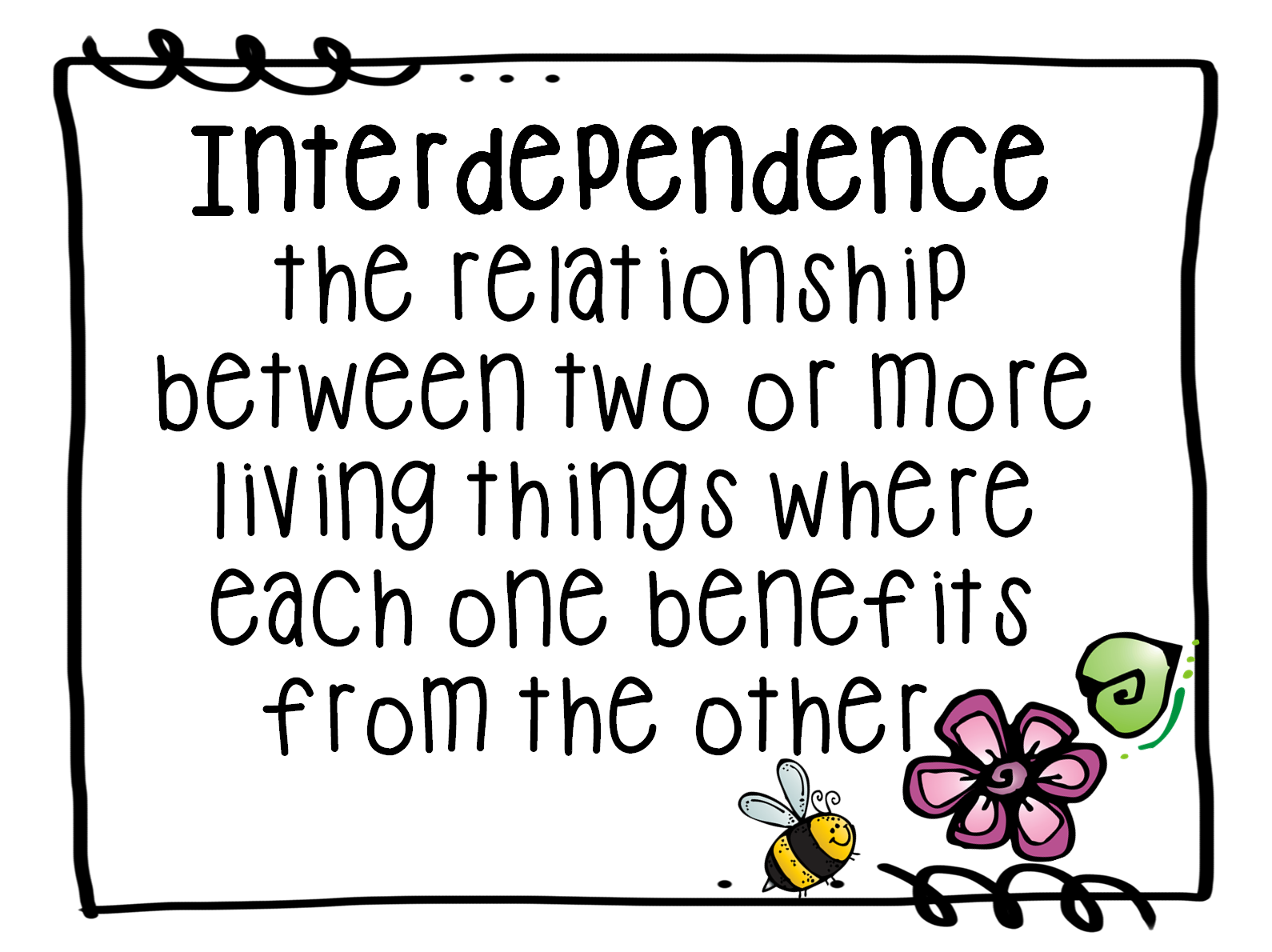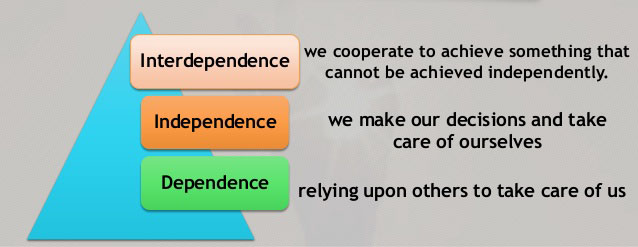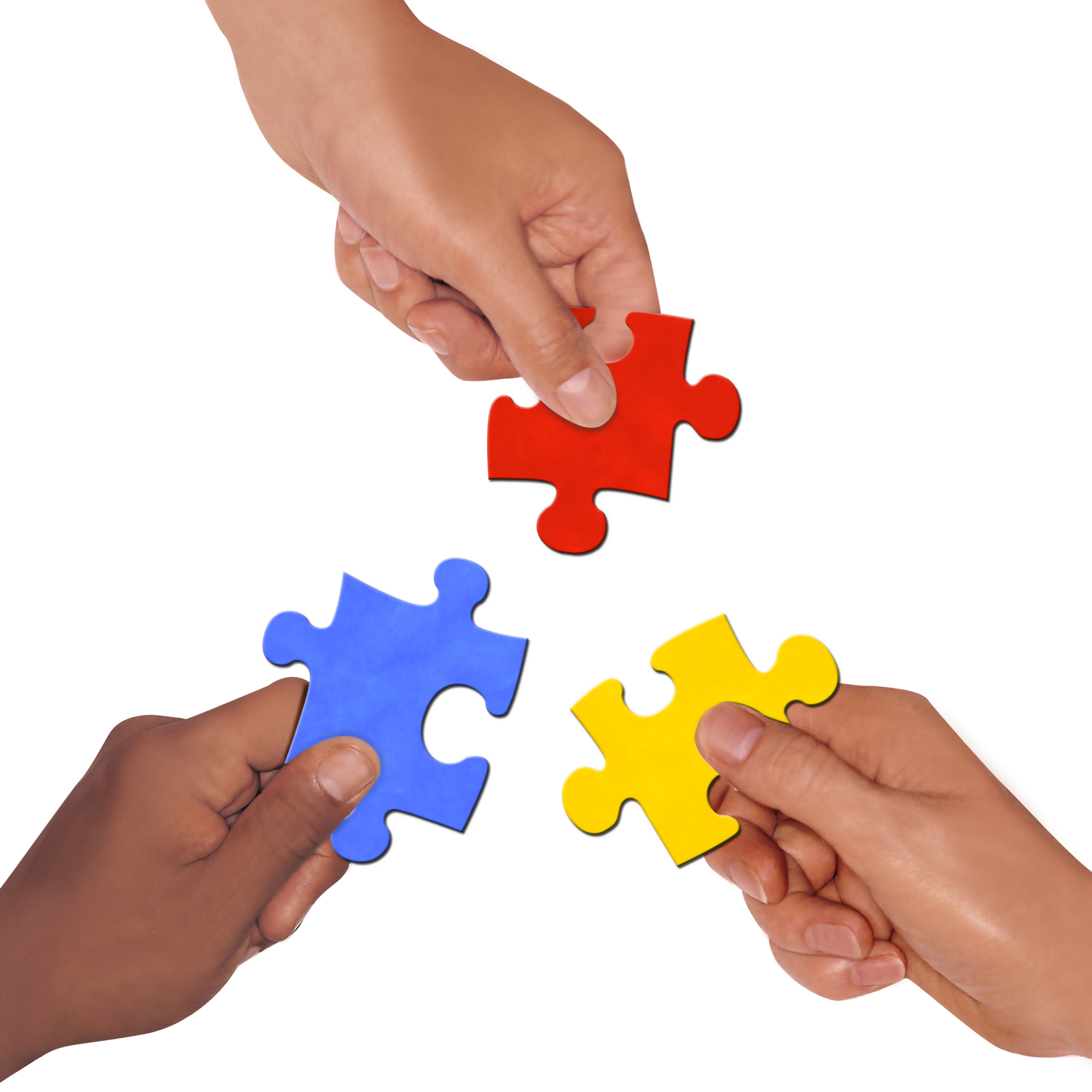Do you have a need to be needed? I know I do and I know we all do! Psychology tells us that all our behavior is motivated by a need and one of our greatest needs is the ‘need to be needed‘. Last night I had a sleepless night as my mind was racing thinking about a visit I paid to an elderly friend in the morning and what she told me.
“Karin, do you know that one of the hardest things about getting old is that nobody needs you any longer. When I offer to help, the reply comes back ‘don’t worry, just relax, I can do it, put your feet up’. ‘I know the other person is meaning to be kind’ said my friend, ‘but I still want to help… I still want to feel needed… but nobody seems to need me any longer…” So the friend’s well- intentioned remarks actually come across as ‘rejection’. This is what got me thinking and having a sleepless night.
Maturity Continuum
We all start life ‘dependent‘ and nobody would argue with the fact that human infants take a very long time to become independent! Having a baby definitely meets a parent’s need to be needed! The parents’ role is to nurture the child to a place where the child or young adult is confident to make his own decisions and take care of himself. This is what independence is all about and has to be the goal of parenting. Only once that state of independence is achieved is it possible to become truly interdependent. The ability to be interdependent is a state of maturity when we are truly able to cooperate with others to achieve something that cannot be achieved independently. It’s a place where we can truly value all our differences and all opinions as being of value to our greater humanity.

However... The process doesn’t always go according to plan…
What happens when a child is brought up in a dysfunctional home, doesn’t reach a state of independence let alone interdependence, and doesn’t ever have their need to feel needed met? In my counselling experience I’ve heard many stories…
- From a teenager: ‘I want to have a baby, I want someone to love me… ‘ (I want to feel needed).
- A woman married to an alcoholic: ‘It made all the difficulties worth it when my husband said he’d have been in the gutter if it weren’t for me.’ (He made me feel needed). I’ve heard this one too many times. Check out my post on adult children of alcoholics.
- I remember counselling a woman who suffered from severe depression and really felt she couldn’t manage without everything her mother did for her. What was really happening here? The mother was getting her need to be needed met by having a dependent ‘mentally ill’ daughter. Check out my post on co-dependence.
- Another woman I counselled had been hospitalized in a psychiatric unit in a catatonic state (unable to speak or move). On investigation it turned out that she was married to a ‘control freak’. She couldn’t do anything without her husband’s permission, not even buy a lipstick without first showing her husband ‘a quote’! He was keeping her dependent thereby getting his need to be needed met. I think this happens more often than we’d like to think. Check out my post on co-dependence.
- Have you heard young girls justify staying in an unsuitable love relationship with the words “but I love him and if I love him enough, he will change”. Really? Is that the right motivation to stay in a relationship? It sounds more like “with all his problems I’ll certainly feel needed and if he doesn’t listen to me, it will be his fault, after all all I’m trying to do is help”. I think the unconscious thinking is “I can get my need to be needed if I can keep him dependent on me (like a child)”. Actually warning bells always ring when I hear people say ‘I’m only trying to help’.
- There are many wonderful women who are regarded as carers in the church but the children end up being quite confused and neglected. “Mom helps so many other people but I just feel that she doesn’t have time for me”. What’s going on here? Well I think it’s got more to do with meeting a need to be needed than really being caring and loving towards others. Families often take each other for granted, not really appreciating each other compared to those outside of the family.
Change your thinking!
We’re not made to stay dependent or independent but interdependent. Many people don’t want to accept help from others as they want to be independent. Is this how you respond when someone asks if they can help you. “No, don’t worry, I’ll manage, I don’t want you to worry, I know you’re busy, I don’t want to put you out of your way… Blah, blah, blah”. Did you notice that this conversation is all focused on YOU, rather than the person who’s offering the help and who’s giving you an opportunity to let them (somebody else) have a chance to feel needed.
Try and think of another scenario. “Can I help you?” (Read: please can I help you? I so much want to feel useful and needed). And you reply “Thank you so much, that’s so kind of you, I’d really appreciate some help.” The change of focus is no longer on YOU but on the other person! That’s what interdependence is all about. So my suggestion is this.
Be on the look – out for opportunities to value and appreciate others, to make others feel needed!
Life’s puzzle is far more beautiful when we all play our pieces. You know what it’s like when you do a puzzle and pieces are missing. Grrh!!
Be conscious of helping people feel needed, that includes the young and old. Their piece of the puzzle might be just what is needed to make a beautiful picture.
So getting back to my elderly friend… She realized that when she was younger she never let people help her because she wanted to stay independent. And now that’s what people were doing to her and it felt terrible! This was my advice to her. “Look at it this way. You now have the perfect opportunity to make other people feel needed, to meet their need to be needed. Just heap thanks and appreciation on anyone who wants to help you – you’re actually doing them a favor! Think of it that way, you’ve got a really important role in helping someone else get their need to be needed met.”
Having got that off my chest, I hope to sleep better tonight!
Check out my posts on the effects of critical parents, changing your partner

